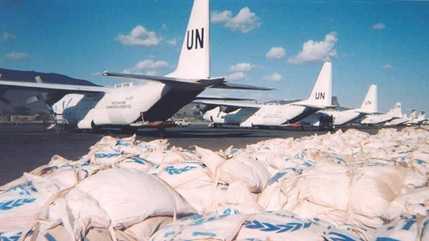
Millions more Yemenis are predicted to be at risk of starvation later this year, after the World Food Programme (WFP) announced further cuts to its food aid in Yemen.
The WFP made the announcement in a Twitter post yesterday, stating that "Critical funding gaps, global inflation and the knock-on effects of the war in Ukraine have forced WFP in Yemen to make some extremely tough decisions about the support we provide to our beneficiaries".
The organisation, which is a body of the UN, currently provides food aid to 13 million people in Yemen. The new cuts, however, further limit that capacity by enabling it to now only provide five million of them with 50 percent of their daily food requirements, while the remaining eight million only getting 25 per cent of their requirements.
It is not only the food aid which will now be restricted, but also the "resilience and livelihood activities, and school feeding and nutrition programs" which will be cut for four million people, leaving only 1.8 million people able to attain them.
These rations come half a year after the WFP was forced to make cuts to Yemen's food aid at the end of 2021 – prior to the Russian invasion of Ukraine – due to a lack in sufficient funding. As it stands, there are at least 17.4 million Yemenis – over half of the country's population – who are in need of food assistance.
Due to the cuts, the ongoing conflict in Yemen and the continued lack of sufficient access to the country's ports, the number of Yemenis in need of food assistance is projected to increase to around 19 million people later this year. Out of that amount, 7.3 million of them will reportedly face emergency levels of hunger.
The cuts also come amid the global shortage of wheat supplies, caused by the Covid-19 pandemic, the worldwide lockdowns and now the Russian invasion of Ukraine.
These shortages are set to compound the humanitarian crisis in Yemen, with the Planning Minister of the Saudi-backed and internationally-recognised Yemeni government warning on Friday that the country's wheat stockpile could finish by mid-July, only weeks away.
The Minister urged European Union member states to help Yemen secure new markets and suppliers to replace the lack of wheat from Ukraine and Russia, which together produce and export around 30 per cent of the world's total wheat supplies.




